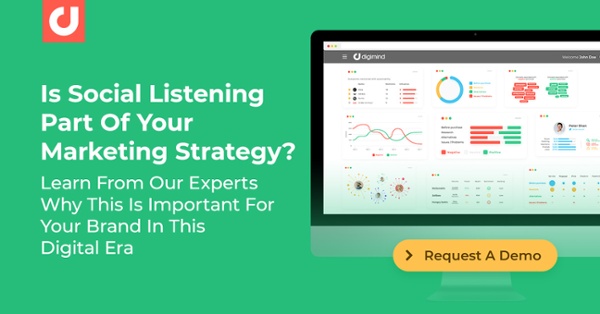Why is Social Listening Important
Since traditional marketing has now transitioned into digital marketing, marketing is no longer restricted to the offline space. Brands take to the online space to promote products, and services, and provide a good experience for consumers, while customers share their experiences interacting with brands, make complaints, and give genuine reviews of products and services.
For any business to get ahead, they will need to listen to the conversations customers are having about them, the sentiments behind certain actions, and what motivates them. This is where social listening comes into place. And this brings us to the pertinent question:
What is social listening?
Before we begin to list out the many reasons why social listening is important for your business, we need to first make sure you understand what social listening is. As you may have gathered from above, social listening is the process of listening to online conversations related to your brand via social media and other platforms, while also analyzing this information to get useful insights.
Social listening goes beyond just tracking mentions of your brand, it involves digging deeper to understand your customers and what makes them tick.
However, social listening should not be mistaken for social media monitoring. Some sources like to use the words interchangeably, but they are two very different processes.
While social media monitoring may be similar to listening, the one distinguishing factor is that listening goes beyond the data and metrics. Social listening uncovers deeper insights that involve sentiments, which social media monitoring does not. Social media monitoring involves keeping track of mentions via social media either about your brand or sometimes about your competitors.
Social listening encompasses a whole list of things from online conversations about your brand, to sentiments, and even conversations within your industry or niche. Social listening provides you with useful insights that influence future decisions and improve your business strategy. These insights discover new opportunities where you can act swiftly and efficiently. Social listening gives you a better view of who your audience is and how you can best meet their needs. Companies use social listening for many reasons because they see the benefit. In case you are still wondering why exactly social listening is important, here are a few reasons listed down below for you.
1. Improves business and social media strategies
The essence of being in business is to cater to the needs and wants of your clients. If the right strategies are not employed in delivering these goods and services, it could create a bad experience for your clients. Also, having the right social media strategy is essential for proper positioning of your in the digital space. When you carry out social listening, you are tuned into the conversations that tell you what you are getting wrong and what you are getting right in business. Listening to and understanding the sentiments of your audience will help you develop better strategies to serve them better and give your brand the right social media exposure.
From social listening, you can fine-tune the business strategies already laid out or develop new ones. It also informs you on the best ways to go about promoting your business online. You are able to pay more attention to the details that matter to existing and prospective customers so you can draw them in.
2. Provides valuable intel about competitors
One thing is for sure: you are probably not the only one providing the goods and services that you offer to your customers. There are other businesses that either provide the exact same thing or things that are similar and can be used as a substitute for yours.
Either way, these companies are considered your competitors, and listening to what customers say about them will offer you insights into what customers really look out for in a brand. Social listening provides you with valuable data that can be used to build intelligence in your competitors. You get to find out what areas they are focusing on and how they may be drawing your customers in.
To gather credible and useful competitive intelligence, you will need to carry out social listening. This is because social listening goes beyond the numbers and gives you deeper insights. You not only monitor mentions but can also get results based on search queries, industry news, and trends that may affect your business operations. You get to find out what position your brand holds in your industry or niche and how this is compared to your competitors. It is pertinent to note that you are not simply comparing your business to competitors, but identifying gaps and strengths to know how you can fill these gaps and incorporate the strengths of your competitors. Competitive intelligence loads you with the right ammunition you need to gain a competitive edge in the market.
3. Maintaining your brand’s image
Not every conversation or mention of your business in the online world may be good. Sometimes when your business gets so many hits and is trending online, it is important to know why. Are customers complaining or appreciating the way you handled a situation? Do they like your products or service, and many other questions. Social listening helps you get ahead of a potentially bad situation to maintain your brand's image. You are able to get in front of any potential PR crisis before they dent your company’s image.
Social listening ensures you continually have a good business reputation. You are able to take the right actionable steps to avert or remedy any situation before it gets out of control. Social listening shows you the sentiments and emotions behind every transaction or conversation relevant to your business.
Conclusion
No man is an island and this is true, even for businesses. Social listening can help you make the right set of business decisions. As a business owner, positioning your business in your industry is one of the priorities and social listening can help with that. Social listening helps you set and achieve better business goals that see the growth and expansion of the business.


